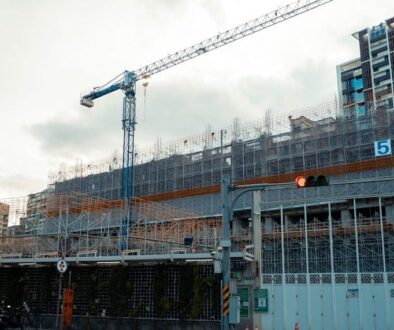It’s Pay Day! (or Is It?): Dealing with “pay-if-paid” Clauses in Construction Contracts

A new construction project springs financial hope for all parties involved. Unfortunately, if the owner fails to pay the general contractor as expected, that hope is quickly replaced by financial anxiety. In these situations, the general contractor is faced with the dilemma of “financing” the project by paying out-of-pocket, or incurring project-damaging problems with labor and material.
Because of these type of circumstances, general contractors may choose to include a “pay-if-paid” clause in their subcontracts.
“Pay-if-paid” clauses attempt to shift the risk of the owner’s failure or refusal to pay for the work. From the general contractor’s view, spreading the risk of an owner’s failure to pay to subcontractors is a legitimate business decision. On the other hand, subcontractors may see the “pay-if-paid” clause as unfair because the risk of an owner’s default is beyond their control. Further, the owner’s failure to pay may have nothing to do with the quality of the subcontractor’s work.
While courts disfavor these type clauses, a “pay-if-paid” clause is generally enforceable if it is:
i) clear the subcontractor is assuming the risk of the owner’s nonpayment to the general contractor,
ii) not subject to the prevention doctrine, and
iii) not unconscionable.
If the clause lacks clarity, it will likely lead a court to construe the provision as a “pay-when-paid” clause, which, instead, entitles the subcontractor to recover payment from the general contractor after it has a reasonable time to attempt to first collect from the owner. In contrast to a “pay-if-paid” clause, a “pay-when-paid” clause only temporarily delays the time when the general contractor must pay the subcontractor. Even if the clause is clear, a general contractor generally cannot defeat the subcontractor’s right to receive payment if the general contractor caused the owner’s nonpayment. This is known as the prevention doctrine. Finally, such a clause will be unenforceable as unconscionable if it is so unfair in its application that no reasonable, informed person would have agreed to it.
For many types of construction contracts, Texas lawmakers have attempted to balance the effects of “pay-if-paid” clauses by instituting a notice process. Chapter 56 of the Texas Business and Commerce Code applies to construction contracts containing a “pay-if-paid” clause on public and private projects in Texas if the projects are not solely for design services, road and highway and other civil projects, and quadruplex or smaller residential construction projects. Parties to a contract cannot waive this statute by contract, and any attempt to do so is void.
Pursuant to the statute, the general rule regarding the enforceability of “pay-if-paid” clauses is as follows:
A [contractor] or its surety may not enforce a contingent payment clause to the extent that the [owner’s] nonpayment to the [contractor] is the result of the contractual obligations of the [contractor] not being met, unless the nonpayment is the result of the [subcontractor’s] failure to meet the [subcontractor’s] contractual requirements.
Once the general contractor invokes a “pay-if-paid” clause, the law implements a notice procedure, which allows a subcontractor the opportunity to challenge the clause by sending an objection notice to the general contractor. Once the general contractor receives the notice, the burden shifts to the general contractor to:
i) pay the subcontractor,
ii) reply in writing setting forth reasons for non-payment, or
iii) be considered in default of the subcontract because a general contractor’s failure to provide a written response makes a “pay-if-paid” clause unenforceable.
If a subcontractor wants to object to the enforceability of a “pay-if-paid” clause, he must send an objection notice to the general contractor after forty-five (45) days have passed from the time the subcontractor submits his pay application. Importantly, the subcontractor’s pay application must comply with the terms of the subcontract and the subcontractor must send a separate notice for each unpaid pay application. To enforce the “pay-if-paid” clause, the general contractor must notify the subcontractor on time that the owner’s nonpayment is not due to the general contractor’s own breach of contract, but instead, due to the subcontractor’ s breach of its contract.
Chapter 56 of the Texas Business and Commerce Code has other nuances and procedural aspects that are beyond the extent of a general overview of this article, but an attorney should be consulted when drafting or examining the enforceability of a “pay-if-paid” clause.


